"Hear, heaven! Listen, earth! For Adonai is speaking. I raised and brought up children, but they rebelled against me." (Isaiah 1:2)
WHO WAS ISAIAH?
Isaiah's Hebrew name, Yesha'yahu, means "Salvation of the LORD." He was of royal blood; kinsman to the king; a member of the royal household. He was a descendant from King David of the tribe of Judah. Isaiah's ministry spans four, maybe even five kings, from Uzziah to possibly, Manasseh.
THE SHABBAT OF VISION
This coming Sunday is Tisha b'Av, the 9th of Av, a catastrophic date in the Jewish Calendar. See below for a list of events that are related to that date on the Jewish calendar.
The Book of Isaiah opens with the words:
This is the vision of Yesha`yahu the son of Amotz, which he saw concerning Y'hudah and Yerushalayim during the days of `Uziyahu, Yotam, Achaz and Y'chizkiyahu, kings of Y'hudah: (Isaiah 1:1)
For that reason, synagogues refer to the Shabbat preceding Tisha B'Av the "Shabbat of Vision."
Most of the text of the haftarah consists of a lawsuit HaShem lodges against Israel in general and Judah in particular.
WITNESSES
HaShem starts by invoking heaven and earth as his witnesses of Israel's misdeeds.
"Hear, heaven! Listen, earth! For Adonai is speaking. "I raised and brought up children, but they rebelled against me. (Isaiah 1:2)
THE CASE
As would be done in the courtroom, the case is expounded. It states that whereas a dumb animal may know his master, Israel does not even know his owner.
An ox knows its owner and a donkey its master's stall,
but Isra'el does not know, my people do not reflect.
"Oh, sinful nation, a people weighed down by iniquity, descendants of evildoers, immoral children!
They have abandoned Adonai,
spurned the Holy One of Isra'el,
turned their backs on him!
(Isaiah 1:3-4)
THE SICK BRUISED MAN
Israel, devastated by to its own sin of idolatry, is compared to a man sick and bruised due to his own sinful foolishness.
"Where should I strike you next, as you persist in rebelling?
The whole head is sick, the whole heart diseased.
From the sole of the foot to the head there is nothing healthy, only wounds, bruises and festering sores that haven't been dressed or bandaged or softened up with oil. "Your land is desolate, your cities are burned to the ground; foreigners devour your land in your presence; it's as desolate as if overwhelmed by floods.
(Isaiah 1:5-7)
The conveyed idea is of the "My head is bloody, but unbowed!" passage in the famous poem, "Invictus." Sadly, in our generation, this attitude is portrayed as a sense of virtue. When it comes to our attitude toward yieldedness to HaShem, it is the epitome of sinful arrogance.
The prophet will later reverse the concept giving it the messianic meaning of
But he was wounded because of our crimes, crushed because of our sins; the disciplining that makes us whole fell on him, and by his bruises [Or: and in fellowship with him] we are healed.
(Isaiah 53:5)
But he was wounded because of our crimes, crushed because of our sins; the disciplining that makes us whole fell on him, and by his bruises [Or: and in fellowship with him] we are healed.
(Isaiah 53:5)
METAPHORS OF THE FUTURE OF JERUSALEM
As the poet and skillful scribe, Isaiah uses every metaphor in the book to describe the state of Jerusalem, the city of the great King.
The daughter of Tziyon is left
like a shack in a vineyard,
like a shed in a cucumber field,
like a city under siege."
(Isaiah 1:8)
Shacks in vineyards (Israel had been called HaShem's vineyard) and sheds in cucumber fields were flimsy, temporary shelters abandoned once the harvest season was over. HaShem compares the glorious city to an abandoned hut, a prophecy certainly fulfilled more than once in the history of Jerusalem.
Isaiah also foresees the siege of King Sennacherib.
THE REMNANT
As in the story of Abraham trying to redeem Sodom, redemption is contingent on a small, righteous remnant.
If Adonai-Tzva'ot had not left us a tiny, \tiny remnant,
we would have become like S'dom,
we would have resembled `Amora.
Hear what Adonai says, you rulers of S'dom! Listen to God's Torah, you people of `Amora!
(Isaiah 1:9-10)
CONCERNING RELIGIOUS HYPOCRISY
Offerings and ritual observances are worthless when not done out of a heart of love for HaShem and our fellow man. Yeshua concurred with that as He promoted reconciliation before even making an offering.
So if you are offering your gift at the Temple altar and you remember there that your brother has something against you, leave your gift where it is by the altar, and go, make peace with your brother. Then come back and offer your gift.
(Matthew 5:23-24)
The people in the days of Isaiah were like the people in the days of Yeshua. They were deeply religious, very zealous, but in error. The way Paul puts it, "Having a form of godliness while denying the power thereof." (2 Tim 3:5)
It is quite easy to rely on one's own righteousness through correct doctrinal and ritual minutia. The fact is that correct doctrines and theologies are less important in HaShem's eyes than ethics, love, and respect for our fellowmen.
"Why are all those sacrifices offered to me?" asks Adonai. "I'm fed up with burnt offerings of rams and the fat of fattened animals! I get no pleasure from the blood of bulls, lambs and goats! Yes, you come to appear in my presence; but who asked you to do this, to trample through my courtyards? Stop bringing worthless grain offerings! They are like disgusting incense to me! Rosh-Hodesh, Shabbat, calling convocations -- I can't stand evil together with your assemblies! Everything in me hates your Rosh-Hodesh and your festivals; they are a burden to me -- I'm tired of putting up with them! "When you spread out your hands, I will hide my eyes from you; no matter how much you pray, I won't be listening; because your hands are covered with blood.
(Isaiah 1:11-15)
THE WAY TO REPENTANCE
Repentance means a total washing away of the old ways.
"Wash yourselves clean!"
What does this "washing" look like?
"Get your evil deeds out of my sight!"
And what does this look like?
Stop doing evil,
learn to do good!
Seek justice,
relieve the oppressed,
defend orphans,
plead for the widow.
(Isaiah 1:16-17)
Compassionate justice for the poor and the disadvantaged is as much a part of Torah observance as eating kosher and observing Shabbat. In fact, one who thinks himself as religious because he observes the rituals of the Torah, but omits its compassionate aspects, deceives himself. Speaking on those issues Yeshua commented to the religious leaders of His days,,
"Woe to you hypocritical Torah-teachers and P'rushim! You pay your tithes of mint, dill and cumin; but you have neglected the weightier matters of the Torah -- justice, mercy, trust. These are the things you should have attended to -- without neglecting the others!
(Matthew 23:23)
We must remember that whether Jew or Gentile, we were all orphans and widows to whom HaShem showed compassion.
CALL FOR A SETTLEMENT OF THE CASE
Having stated His case, HaShem calls for a settlement of the case; he calls for a reasonable conversation and admission of guilt.
"Come now," says Adonai, "let's talk this over together."
Instead of imposing a penalty on the people, HaShem proposes complete absolution as the result of true repentance.
Even if your sins are like scarlet,
they will be white as snow;
even if they are red as crimson,
they will be like wool.
(Isaiah 1:18)
The metaphor uses wool dyed red. Once wool is dyed red, it is impossible to render it white again. It requires a miracle.
If you are willing and obedient,
you will eat the good of the land;
but if you refuse and rebel,
you will be eaten by the sword";
for the mouth of Adonai has spoken.
(Isaiah 1:18-20)
A LAMENT ...
How the faithful city has become a whore!
Once she was filled with justice,
righteousness lodged in her;
but now murderers!
Your silver is no longer pure,
your wine is watered down.
Your leaders are rebels, friends of thieves.
They all love bribes and run after gifts.
They give no justice to orphans,
the widow's complaint doesn't catch their attention.
(Isaiah 1:21-24)
... A RESOLVE ...
"Therefore," says the Lord,
Adonai-Tzva'ot, the Mighty One of Isra'el,
"I will free myself of my adversaries,
I will take vengeance on my enemies.
But I will also turn my hand against you! I will cleanse your impurities as with lye and remove all your alloyed base metal. (Isaiah 1:25)
... AND A RESTORATION!
I will restore your judges as at first
and your advisers as at the beginning.
After that, you will be called
the City of Righteousness,
Faithful City.
Tziyon will be redeemed by justice;
and those in her who repent,
by righteousness.
(Isaiah 1:26-27)
THE JUST, RIGHTEOUS ONE REDEEMS ZION.
MAY IT BE SOON HASHEM, EVEN IN OUR DAYS.
We started this with remembering Tisha b'Av, a day of mourning.
Here is a prophecy of Jeremiah proclaiming that He will turn our mourning into joy.
Nations, hear the word of Adonai!
Proclaim it in the coastlands far away.
Say: "He who scattered Isra'el is gathering him, guarding him like a shepherd his flock."
For Adonai has ransomed Ya`akov,
redeemed him from hands too strong for him.
They will come and sing on the heights of Tziyon,
streaming to the goodness of Adonai,
to the grain, the wine, the olive oil,
and the young of the flock and the herd.
They themselves will be like a well-watered garden,
never to languish again.
"Then the virgin will dance for joy,
young men and old men together;
for I will turn their mourning into joy,
comfort and gladden them after their sorrow.
(Jer 31:10-13)
SHABBAT SHALOM
R' GABRIEL LUMBROSO
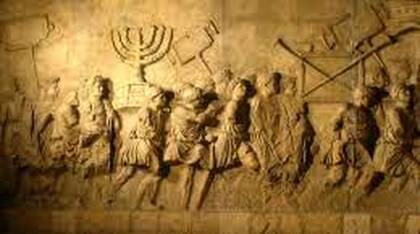


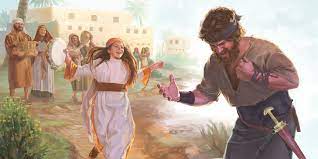
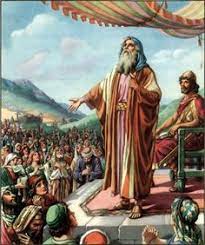

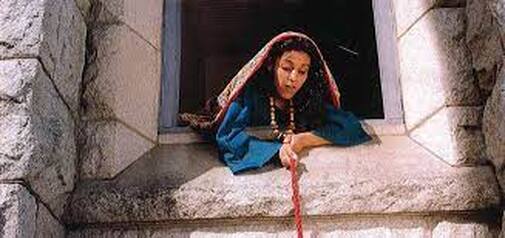
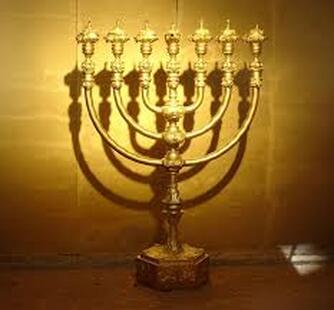

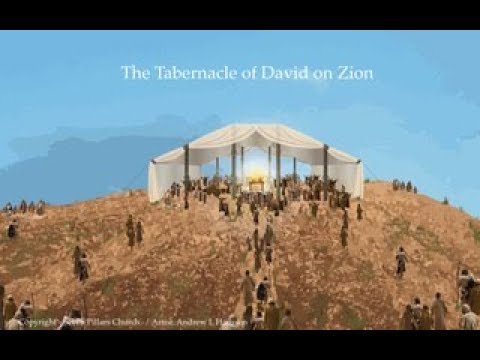
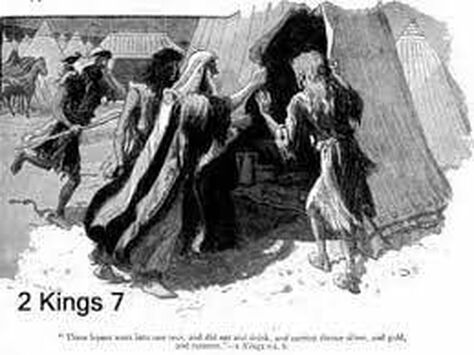
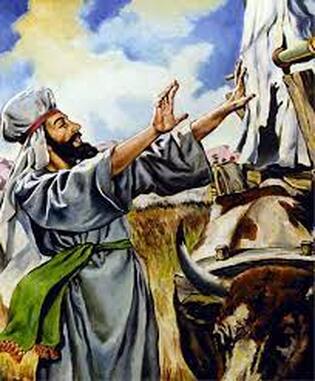


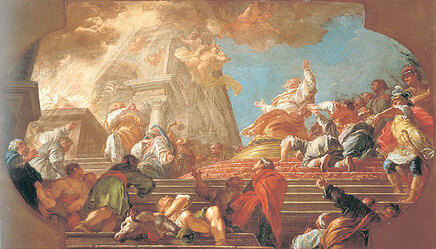


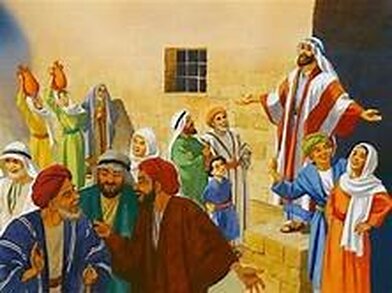
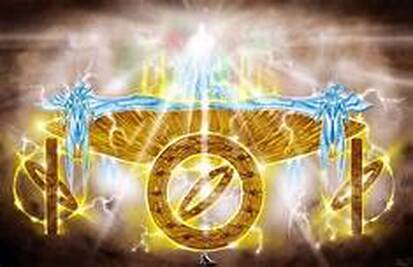

 RSS Feed
RSS Feed